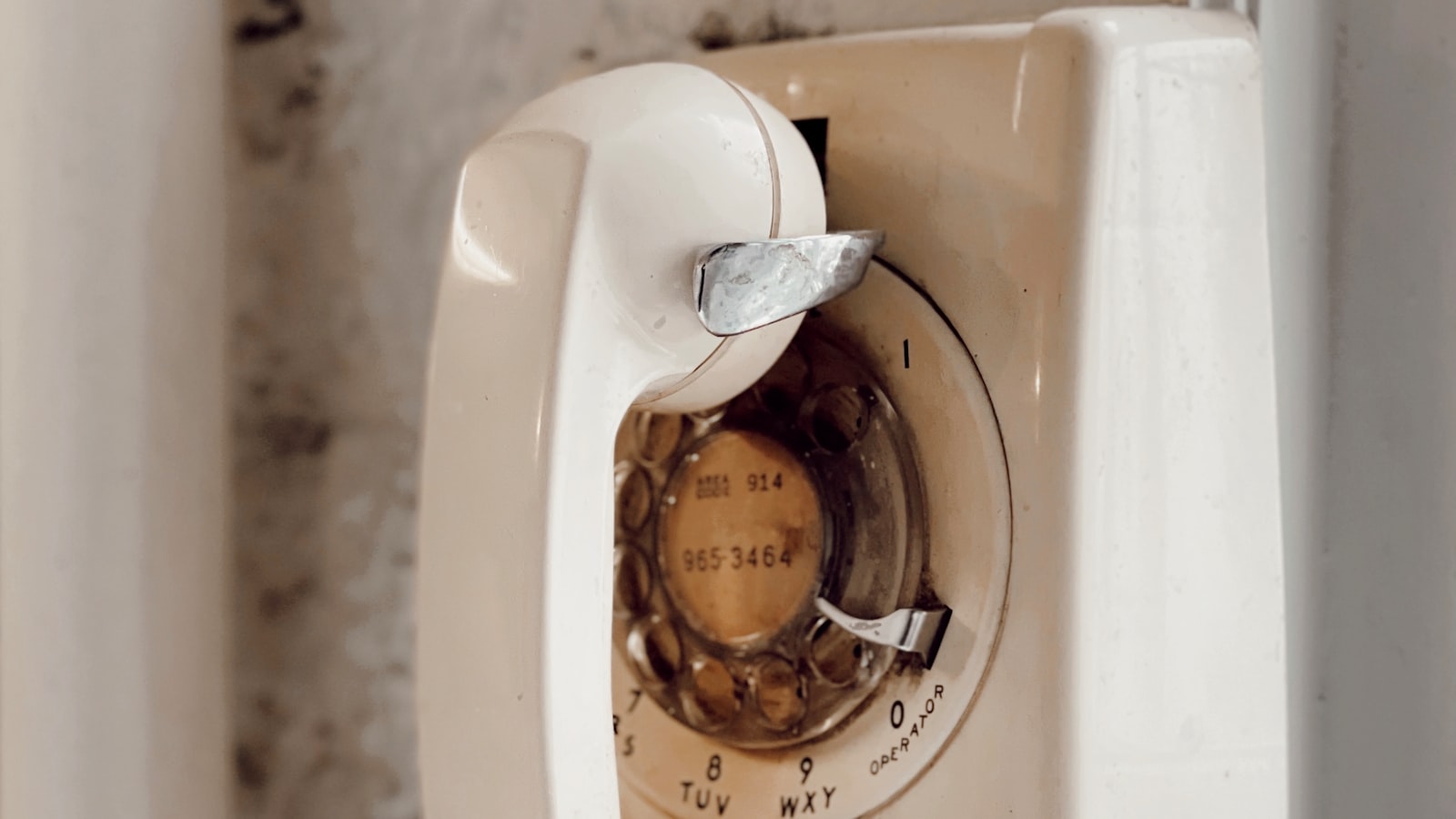- 0 Comments
- Views 54
No one enters a relationship with the expectation of it becoming toxic. We seek love, understanding, and a connection that enriches our lives. Unfortunately,not all relationships unfold as we hope. A toxic relationship is characterized by feelings of being misunderstood, unheard, and disrespected. It drains your energy and leaves you feeling depleted.
But how do you know if your relationship is toxic?It’s important to recognize the signs early on to prevent further damage. In this comprehensive guide, we will explore the common indicators of a toxic relationship and the role of self-awareness in improving it. We will also delve into effective communication strategies and provide steps to fix a toxic relationship.
So,if you’re ready to transform your toxic relationship into a healthy and fulfilling one,let’s dive in. Together, we’ll navigate the complexities of relationships and embark on a journey towards building a stronger connection with your partner.
Next: Recognizing the Signs of a Toxic Relationship
Recognizing the Signs of a Toxic Relationship
In order to address a toxic relationship, it is essential to first recognize the signs. These signs serve as red flags, indicating that the relationship has taken a negative turn. Here are some common indicators of a toxic relationship:
– Controlling behavior where your partner tells you what you can and can’t do, limiting your freedom and autonomy.
– Manipulative behaviors such as gaslighting,stonewalling,criticism,and blame-shifting,which erode trust and undermine your self-esteem.
– Extreme jealousy or insecurity that isolates you from your friends and family, creating a sense of isolation and dependence on your partner.
– Abusive relationship behaviors like outbursts of anger, violence,accusations, and name-calling,which cause emotional and physical harm.
– Feeling like you’re constantly walking on eggshells to avoid upsetting your partner,leading to constant anxiety and fear.
Recognizing the Signs of a Toxic Relationship
- Controlling behavior where your partner tells you what you can and can’t do.
- Manipulative behaviors, including gaslighting,stonewalling, criticism,and blame-shifting.
- Extreme jealousy or insecurity that isolates you from your friends and family.
- Abusive relationship behaviors such as outbursts of anger,violence,accusations, and name-calling.
- Feeling like you’re constantly walking on eggshells to avoid upsetting your partner.
Now that you have identified the signs,let’s understand how self-awareness plays a crucial role in fixing a toxic relationship.
Next:Role of Self-Awareness in Toxic Relationships
Role of Self-Awareness in Toxic Relationships
The Role of Self-Awareness in Fixing Toxic Relationships
Self-awareness plays a crucial role in addressing toxic behavior patterns within a relationship. It involves recognizing and acknowledging our own actions and the impact they have on our partner. By developing self-awareness,both partners can take responsibility for their contributions to the toxicity.
Being self-aware promotes open and honest communication,allowing for a deeper understanding of each other’s needs and concerns. It enables us to identify and address our own toxic traits,fostering personal growth and positive change in the relationship.
Moreover, self-awareness cultivates empathy and understanding between partners. It helps us recognize and challenge negative thought patterns that contribute to toxic dynamics. By being aware of our own needs and boundaries,we create a healthier dynamic built on trust and respect.
Breaking free from the cycle of blame and accusations becomes possible through self-awareness. It allows us to reflect on our actions,take ownership,and work towards creating a more harmonious connection.
Now, let’s move on to how to communicate effectively in a relationship.
Mastering Communication in Relationships
Effective communication is the key to transforming a toxic relationship into a healthy one. It requires both partners to share their feelings, concerns,and desires openly and honestly. By mastering communication skills,you can lay the foundation for positive change. Here are some tips and techniques to help you enhance communication in your relationship:
1. Before anything can actually get fixed,both partners need to share how they’re feeling and talk about their concerns. This open dialogue sets the stage for understanding and empathy.
2. Define the problems in the relationship, including toxic communication patterns. Discuss ways to improve them and work together towards healthier communication.
3. Listening to each other’s concerns is essential. Avoid resorting to yelling or blaming,and instead create a safe space for active listening and understanding.
4. Learn how to express criticisms constructively. Use techniques like the “compliment sandwich” or constructive dialogue construction to foster understanding and minimize defensiveness.
5. Be open to seeking outside help through individual or couples counseling if needed. Sometimes,an unbiased perspective can provide valuable insights and guidance.
It’s important to recognize that a toxic relationship may not have a single “bad guy.” Toxicity often stems from unhealthy communication patterns between both partners.
Mastering Communication in Relationships: Tips and Techniques
- Before anything can actually get fixed, both partners need to share how they’re feeling and talk about their concerns.
- Define the problems in the relationship, including toxic communication patterns,and discuss ways to improve them.
- Listen to each other’s concerns and avoid resorting to yelling or blaming.
- Learn how to express criticisms constructively and have open,honest conversations.
- Be open to seeking outside help through individual or couples counseling if needed.
- Recognize that a toxic relationship may not have a single ‘bad guy’ but rather stems from toxic communication patterns between both partners.
- Use communication techniques like the ‘compliment sandwich’ or dialogue construction to foster understanding and active listening.
- Be willing to have uncomfortable conversations that may have been avoided for too long.
- Commit to honest,healthy communication patterns without fear or hesitation.
- Don’t shy away from conflicts; instead, address them with a plan for change and resolution.
Armed with effective communication strategies, let’s explore how to implement changes to fix a toxic relationship.
Next:Steps to Fix a Toxic Relationship
Steps to Fix a Toxic Relationship
Fixing a toxic relationship requires conscious effort,self-reflection,and a commitment to change. Here are the steps you can take to transform your toxic relationship into a healthier one:
Step 1: Understand whether the relationship actually can be fixed
Take the time to reflect on your relationship and honestly assess its potential for improvement. Consider if both partners are willing to put in the necessary work and accept responsibility for their actions.
Step 2: Consider where the toxicity began
Analyze the timeline of your relationship and identify when things started going wrong. Understanding the root causes of the toxicity can help you address them effectively.
Step 3:Talk about your feelings
Openly communicate your emotions with your partner. Focus on expressing how their actions made you feel rather than blaming or criticizing them. This open dialogue sets the stage for understanding and empathy.
Step 4:Assess the severity of toxicity
Evaluate whether the toxicity in your relationship involves abuse or violence. If it does, it may not be salvageable,and your safety should be prioritized above all else.
Step 5:Take some time off
Distance yourself from your partner temporarily to gain clarity and perspective. Taking a step back allows you to assess whether you genuinely see potential for positive change in the relationship.
Step 6: Engage in crucial conversations
Initiate honest conversations with your partner about difficult topics that have been avoided or withheld. Share your truths and encourage them to do the same. This open dialogue fosters understanding and lays the groundwork for growth.
Step 7:Seek professional support
Consider seeking guidance from a therapist or relationship expert who can provide tools,advice,and support throughout the process. They can offer objective insights and strategies tailored to your specific situation.
Step 8:Embrace perseverance and effort
Commit to ongoing personal growth and positive changes in the relationship. It takes time and effort from both partners to break free from toxic patterns and establish healthier dynamics.
Step 9: Monitor progress and buy-in from both partners
Regularly assess if substantive improvements are being made by both individuals. It’s important for both partners to be equally invested in the process of healing and transformation.
Step 10:Believe in a thriving, blessed relationship
Maintain faith in the possibility of a healthy and fulfilling partnership. Remember that everyone deserves to be in a loving, supportive relationship that brings comfort and happiness.
| Step | Description | Example |
|---|---|---|
| Step 1 | Understand whether the relationship actually can be fixed | Reflect on the relationship and assess its potential for improvement. |
| Step 2 | Consider where the toxicity began | Analyze the timeline of your relationship to identify when things started going wrong. |
| Step 3 | Talk about your feelings | Openly communicate your emotions with your partner. |
| Step 4 | Assess the severity of toxicity | Determine if the relationship is salvageable based on the level of abuse or violence involved. |
| Step 5 | Take some time off | Distance yourself from your partner to gain clarity and perspective. |
| Step 6 | Engage in crucial conversations | Discuss difficult topics and share withheld truths with each other. |
| Step 7 | Seek professional support | Consult a therapist or relationship expert for guidance and tools. |
| Step 8 | Embrace perseverance and effort | Commit to ongoing personal growth and positive changes in the relationship. |
| Step 9 | Monitor progress and buy-in from both partners | Regularly assess if substantive improvements are being made by both individuals. |
| Step 10 | Believe in a thriving, blessed relationship | Maintain faith in the possibility of a healthy and fulfilling partnership. |
Restoring a toxic relationship is challenging but possible. By following these steps and remaining committed to personal growth and positive changes,you can create a stronger, healthier connection with your partner.
Next: Maintaining a Healthy Relationship
Maintaining a Healthy Relationship
Habits for Long-Term Success
Once you have fixed a toxic relationship and created a healthier dynamic,it’s important to maintain the positive changes. Here are some habits that can help you sustain a healthy relationship:
1. Communicate openly and honestly: Keep the lines of communication open,expressing your thoughts,feelings,and needs with transparency. Clear and honest communication strengthens the bond between partners.
2. Practice active listening: Make an effort to truly understand your partner’s perspective by actively listening without interrupting or judging. This fosters empathy and deepens your connection.
3. Show appreciation and gratitude: Regularly express appreciation for your partner’s efforts and acknowledge the things they do that make you happy. Gratitude cultivates positivity in the relationship.
4. Make quality time a priority:Dedicate time to connect with each other on a regular basis. Whether it’s a date night or simply spending uninterrupted time together,prioritize nurturing your bond.
5. Support individual goals and passions:Encourage each other’s personal growth by supporting individual goals and passions. Celebrate each other’s achievements, fostering a sense of support and admiration.
6. Resolve conflicts calmly and respectfully: Conflict is inevitable in any relationship,but it’s crucial to address it in a healthy manner. Approach conflicts with respect, actively listen, and find mutually beneficial solutions.
7. Keep the romance alive: Continue to nurture romance by engaging in small gestures of love and affection. Surprise each other, plan special moments, and keep the spark alive.
8. Maintain trust: Trust is the foundation of any healthy relationship. Be reliable,keep your promises, and communicate openly about any concerns that may arise.
9. Continuously work on personal growth together:Strive for personal growth individually and as a couple. Attend workshops or therapy sessions together to deepen your understanding of yourselves and each other.
10. Celebrate milestones and achievements as a couple: Take time to celebrate important milestones and achievements as a couple. Reflect on your journey and appreciate how far you’ve come.
By implementing these habits,you can nurture the health and happiness of your relationship. Remember,maintaining a healthy relationship requires ongoing commitment and effort from both partners.
Let’s move on to some of the frequently asked questions about fixing a toxic relationship.
Conclusion: The Journey Towards a Healthier Relationship
Fixing a toxic relationship is not an easy task,but it is possible with dedication and self-awareness. It starts with understanding if the relationship can be salvaged and taking time apart to gain perspective. Engaging in crucial conversations, seeking professional support,and working on personal growth are essential steps in the process.
To maintain a healthy relationship,prioritize open and honest communication, show appreciation for each other, and support individual goals. Resolve conflicts respectfully and keep the romance alive. Trust and continuous effort from both partners are key to long-term success.
Remember,every relationship has its challenges,but with commitment and perseverance, you can navigate the journey towards a healthier,more fulfilling partnership.
Stay tuned for more insightful articles on relationships and personal development.
Frequently Asked Questions
What are some common signs of a toxic relationship?
Common signs of a toxic relationship include controlling behavior,manipulation (such as gaslighting and blame-shifting), extreme jealousy or insecurity,abusive behaviors,constantly walking on eggshells,concerns expressed by loved ones, feeling anxious or unsafe, and poor self-worth due to mistreatment. Recognizing these signs is vital for knowing how to fix a toxic relationship. It requires self-awareness,effective communication, teamwork,and self-care. Healing and transformation are possible with commitment and effort from both partners.
How can self-awareness help improve a relationship?
Self-awareness plays a vital role in improving a relationship. It involves recognizing and taking responsibility for the toxic behaviors we contribute to the relationship. Both partners must be willing to invest in making positive changes, such as deepening conversations and setting aside quality time together. Shifting from blaming to understanding creates a path forward. Trusting oneself and sticking to personal values is essential,as is cultivating mindfulness practices. Improved communication and awareness of each other’s needs lead to a happier,healthier connection. Remember,a toxic relationship requires effort from both partners to bring about positive change.
What are some effective communication strategies for relationships?
Effective communication is crucial in fixing a toxic relationship. Instead of resorting to yelling and name-calling,strive for calmness, rationality,and empathy. Take note of your body language,ensuring it is open and welcoming. Use “I” language to express your feelings without blaming or attacking your partner. Actively listen to each other’s concerns and avoid dominating conversations. Seeking couples counseling or support from trusted friends or mentors can also facilitate healthy communication. Remember, practicing healthy communication is vital for repairing and maintaining a strong relationship.
What steps can I take to fix a toxic relationship?
Steps to Fix a Toxic Relationship
Fixing a toxic relationship requires conscious effort,self-reflection, and a commitment to change. Here’s how to take steps towards healing:
1. Engage in crucial conversations:Initiate open, honest discussions about your concerns and feelings, staying in dialogue even when uncomfortable.
2. Seek professional support: Find a therapist or relationship expert who can provide guidance and equip you with tools to turn a toxic relationship healthy.
3. Assess the potential for change: Reflect on whether both partners are willing to do the inner work needed to overcome toxicity and make progress.
4. Take time apart:Distance yourself from the relationship temporarily to gain clarity and perspective.
5. Analyze the root causes:Consider when the toxicity began in the relationship,identifying triggers and patterns that need addressing.
6. Communicate honestly: Share your feelings without blame or criticism, focusing on how their actions made you feel.
7. Practice patience:Fixing a toxic relationship takes time and effort from both partners. Be patient as you work through challenges and make compromises.
8. Re-evaluate progress:Regularly assess if improvements are being made and if both partners are equally invested in the healing process.
Remember, fixing a toxic relationship is a journey that requires commitment,self-awareness,effective communication, and professional support.












